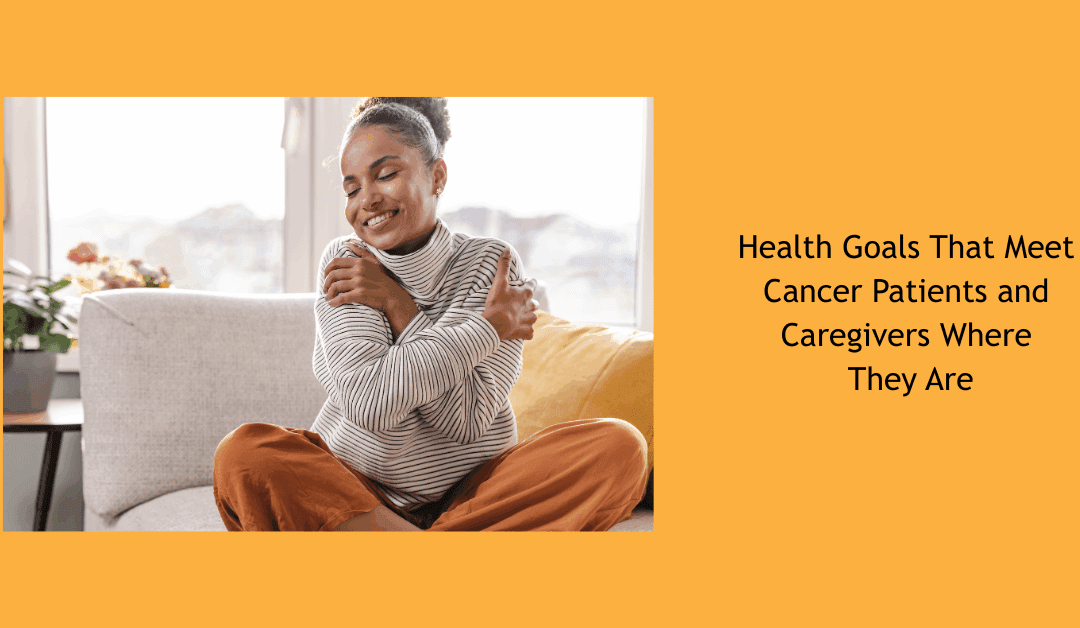
by Bag It Team | Jan 13, 2026 | Educational Articles
Consider Health Goals That Meet You Where You Are
 January often brings messages about transformation—new habits, new routines, new expectations. For many people impacted by cancer, those messages can feel overwhelming or disconnected from reality.
January often brings messages about transformation—new habits, new routines, new expectations. For many people impacted by cancer, those messages can feel overwhelming or disconnected from reality.
Health doesn’t look the same for everyone, and it rarely follows a straight line. Treatment, recovery, caregiving, and survivorship all come with their own rhythms. Some days are about strength and momentum; others are about rest and simply getting through.
Rather than focusing on traditional resolutions, this season can be an opportunity to think differently about health—through smaller, more compassionate intentions. These intentions aren’t about fixing or improving yourself; they’re about noticing what you need and responding with care.
That might mean:
- Listening closely to your body and honoring rest without guilt
- Letting go of expectations about what health “should” look like
- Asking for support sooner, even when it feels uncomfortable
- Choosing movement, nourishment, or connection in ways that feel gentle and supportive
- Giving yourself permission to move at your own pace
For many people impacted by cancer, health goals are shaped by things outside of their control—treatment schedules, energy levels, emotions, and the needs of loved ones. In that reality, traditional goal-setting can feel unrealistic.
That’s why compassionate health goals begin with listening. Listening to your body, your emotional capacity, and what feels sustainable right now. These intentions allow for flexibility, rest without guilt, and adjustments when energy changes—while honoring mental and emotional well-being alongside physical health.
Health is not meant to be navigated alone. Support—from people, healthcare providers, and community organizations—plays an important role. At Bag It Cancer, our Bags are designed to be small reminders that care and connection can show up in simple, meaningful ways.
As the year unfolds, consider checking in with yourself often. Your needs may change, and that’s okay. Health intentions don’t need to be big or visible to matter. Sometimes the most meaningful steps are quiet ones, taken one day at a time.
Caring for yourself in ways that feel realistic and kind is always enough.
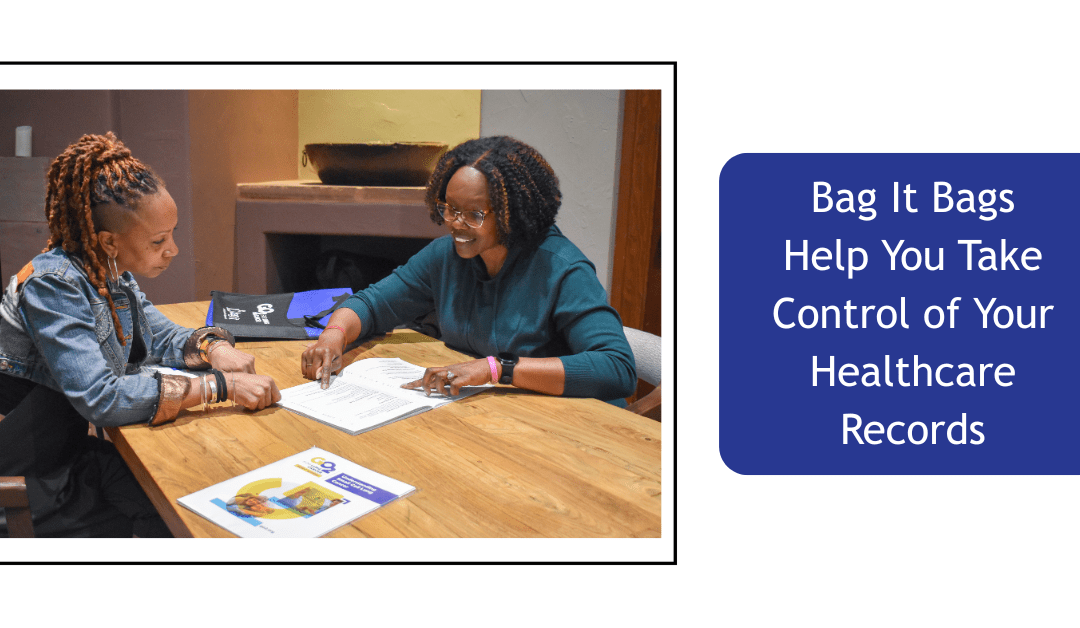
by Bag It Team | Apr 7, 2025 | Educational Articles
Why It Matters & How Bag It Can Help
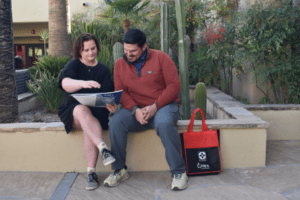 March is Records Management Month—a perfect time to assess how you organize and manage your healthcare records. Whether you’re navigating a new diagnosis, managing a chronic condition, or simply keeping up with routine checkups, having your medical records organized can save time, reduce stress, and empower you to be an active participant in your care.
March is Records Management Month—a perfect time to assess how you organize and manage your healthcare records. Whether you’re navigating a new diagnosis, managing a chronic condition, or simply keeping up with routine checkups, having your medical records organized can save time, reduce stress, and empower you to be an active participant in your care.
Why Keep Your Healthcare Records Organized?
Medical records contain essential details about your health history, including test results, treatment plans, medications, and doctor’s notes. Keeping track of these documents helps you:
- Ensure accurate and consistent care – Having records readily available helps healthcare providers make informed decisions.
- Prevent duplicate tests and procedures – Access to past test results can save time, reduce costs, and avoid unnecessary procedures.
- Monitor progress and advocate for yourself – Tracking treatment plans, medications, and symptoms allows for better communication with your medical team.
- Prepare for emergencies – Quick access to records can be crucial in urgent situations, especially when visiting new doctors or specialists.
How a Bag It Bag Can Help
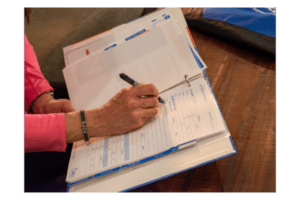 At Bag It Cancer, we understand that managing medical information can be overwhelming. That’s why every Bag It bag includes a My Companion Guidebook, a simple and effective tool designed to help patients and caregivers organize their healthcare journey. Inside, you’ll find:
At Bag It Cancer, we understand that managing medical information can be overwhelming. That’s why every Bag It bag includes a My Companion Guidebook, a simple and effective tool designed to help patients and caregivers organize their healthcare journey. Inside, you’ll find:
✔ Tabbed sections to sort medical records, test results, and insurance information.
✔ Prompted pages for recording doctor visits, questions, and treatment details.
✔ Resources to help you understand your diagnosis, treatment options, and survivorship care.
Whether you’re dealing with cancer or another serious health condition, staying organized gives you confidence and control. This Records Management Month, take the time to gather, review, and organize your healthcare records. And if you or someone you know could benefit from a Bag It bag, visit [Bag It Cancer’s website] to learn more.
For more tips, read this story from our April 2022 Newsletter.
Be Empowered. Be Engaged. Bag It!
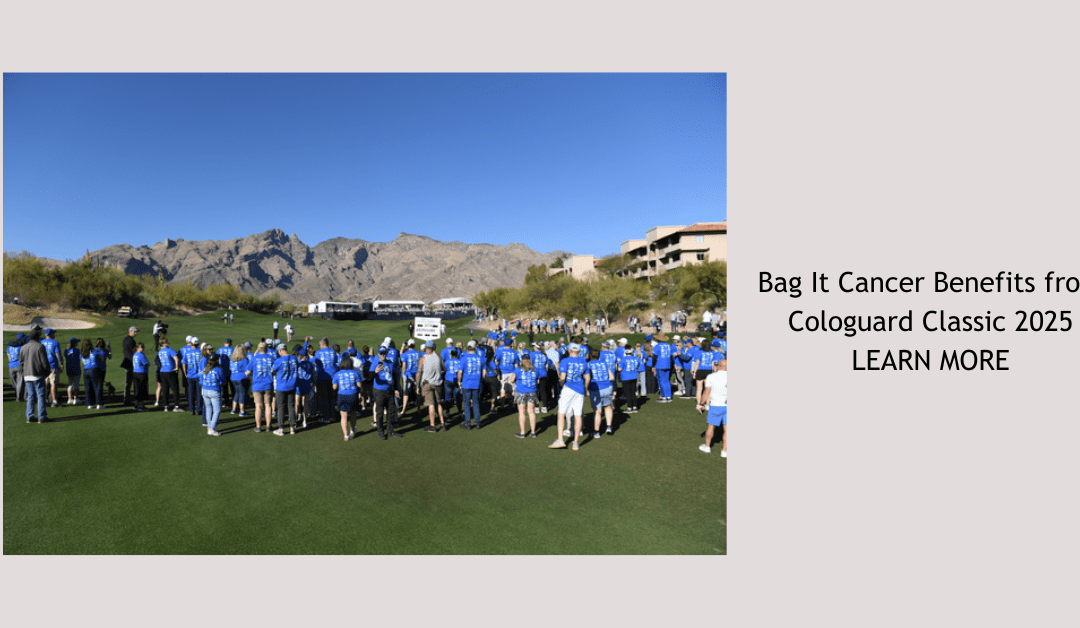
by Bag It Team | Mar 12, 2025 | Events
By Ingrid, Bag It Bag recipient and volunteer
The 2025 Cologuard Classic by Exact Sciences
March 2 – 9, 2025
 Three rounds of golf were played on March 7, 8, and 9 at La Paloma Country Club and The Westin La Paloma Resort & Spa in Tucson, Arizona. It’s a beautiful Jack Nicklaus-designed course. The purpose of the Cologuard Classic golf tournament is to bring awareness to colon cancer, the importance of early detection, the available treatments, the innovations in detection and treatment, the prevention, recognize those affected, and to answer the huge number of questions that people have about colon cancer. What an exciting and busy weekend! Much walking was involved. Thank you to the Tucson Conquistadores and Exact Sciences and many others for coordinating this event.
Three rounds of golf were played on March 7, 8, and 9 at La Paloma Country Club and The Westin La Paloma Resort & Spa in Tucson, Arizona. It’s a beautiful Jack Nicklaus-designed course. The purpose of the Cologuard Classic golf tournament is to bring awareness to colon cancer, the importance of early detection, the available treatments, the innovations in detection and treatment, the prevention, recognize those affected, and to answer the huge number of questions that people have about colon cancer. What an exciting and busy weekend! Much walking was involved. Thank you to the Tucson Conquistadores and Exact Sciences and many others for coordinating this event.
Seventy-eight PGA champion golfers were paired with colon cancer patients/survivors. I was one of those survivors who had the honor of being paired with a golf pro. He wore a blue ribbon with my name on it on his cap, and he played in my honor. We got to meet our pro and chat for a few minutes before they teed off. Then, we could walk as much of the course as we wanted or were able. We could follow the golfers on several well-placed giant televisions inside and outside.
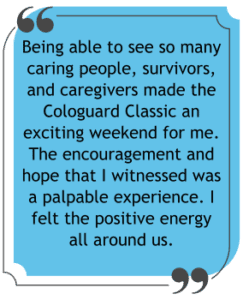 We were able to attend and participate in some fun and informative activities in the “Advocacy Expo Area”, yummy food was readily available in Survivor Central and other areas, there was some TV coverage of the opening ceremonies on the Today Show, there were some workshops/presentations inside the main hotel about treatment options, diagnoses, giving our feedback about our cancer experiences, and treatment innovations. I would like to have been able to attend more because they all sounded very interesting. Some of us touched base with fellow survivors and had personal conversations. I was able to give one of the new CRC (Colorectal Cancer) Bag It Bags to a lady from South Carolina. She and I went to her room and I gave her the guided tour of the Bag. She was extremely grateful to receive the bag. The look of gratitude on her face was rewarding. We exchanged contact information and we’ll stay in touch.
We were able to attend and participate in some fun and informative activities in the “Advocacy Expo Area”, yummy food was readily available in Survivor Central and other areas, there was some TV coverage of the opening ceremonies on the Today Show, there were some workshops/presentations inside the main hotel about treatment options, diagnoses, giving our feedback about our cancer experiences, and treatment innovations. I would like to have been able to attend more because they all sounded very interesting. Some of us touched base with fellow survivors and had personal conversations. I was able to give one of the new CRC (Colorectal Cancer) Bag It Bags to a lady from South Carolina. She and I went to her room and I gave her the guided tour of the Bag. She was extremely grateful to receive the bag. The look of gratitude on her face was rewarding. We exchanged contact information and we’ll stay in touch.
The third and final round was played on Sunday. It was fun sitting, chatting, eating and watching the golfers at the 15th green, Survivor Central with other survivors/loved ones. Individuals representing 17 different cancer advocacy groups were in attendance and bringing awareness to colorectal cancer. There was a 15th hole walk by many of the survivors/loved ones to show awareness and a play-off between the top two players to cap off the tournament. The winner of the trophy was Steven Alker; he came in 12 under par for all three days.
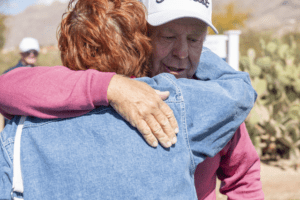 I found out that there were 361 colorectal cancer patients, survivors, caregivers and loved ones from 36 states and Canada who attended this year’s Cologuard Classic.
I found out that there were 361 colorectal cancer patients, survivors, caregivers and loved ones from 36 states and Canada who attended this year’s Cologuard Classic.
It was definitely a weekend well-spent.
Important Reminder: Get screened for colorectal cancer! Screening is vital in detecting cancer early. Learn more about Cologuard®.
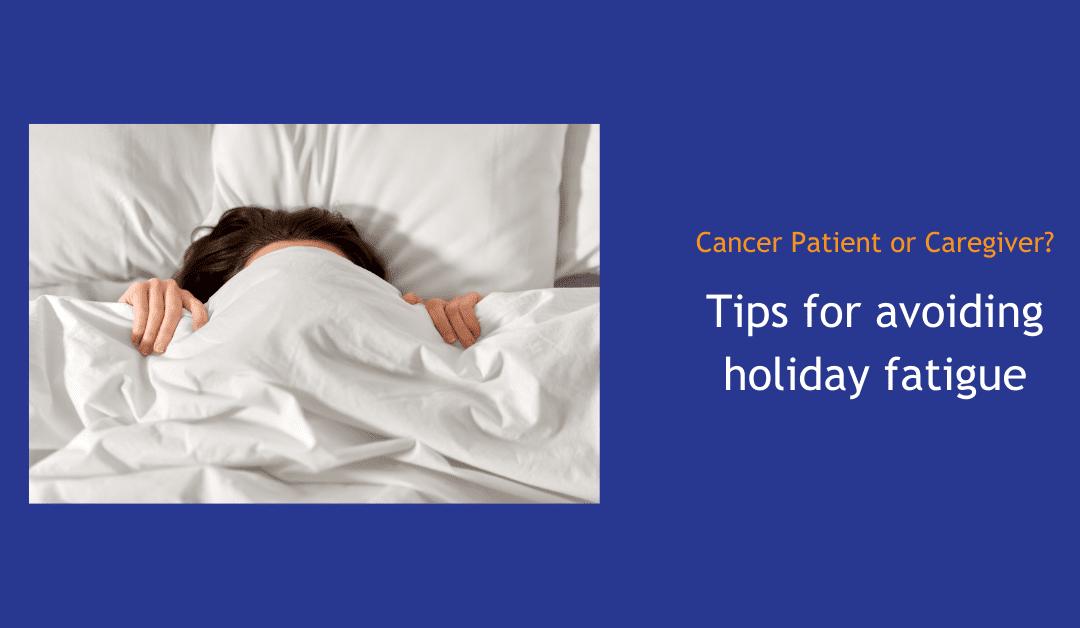
by Bag It Team | Dec 9, 2024 | Educational Articles
The holiday season can be exhausting for anyone, but cancer-related fatigue is a unique challenge. This type of fatigue goes beyond ordinary tiredness. It’s a deep, persistent fatigue or exhaustion that doesn’t improve with rest or sleep, often leaving you feeling unable to carry out your usual activities.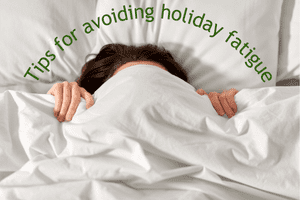
Cancer-related fatigue is a very common issue and can result from several factors, including:
- The cancer itself or other medical conditions.
- Treatments like chemotherapy, radiation, or surgery, and their side effects.
- Medications you’re taking.
- Changes in blood counts.
- Lifestyle factors, such as sleep disruptions, poor nutrition, or inadequate hydration.
- Emotional or mental health struggles, which fatigue can worsen.
You Don’t Have to Endure It Alone
Share your symptoms with your healthcare team so they can identify possible causes and suggest medical and non-medical treatments to help you.
Let loved ones know how you’re feeling—they often want to help but may not know how. Work together to adjust holiday traditions—whether it’s scaling back on celebrations, delegating or sharing tasks like decorating or cooking, or simplifying shopping. Focus on the activities that matter most to you and bring joy.
And yes, naps are absolutely allowed!
Self-Care Strategies for Cancer-Related Fatigue
These tips can help manage fatigue during the holidays and beyond:
- Set priorities. Choose manageable goals, establish routines, and let go of less important tasks. Don’t hesitate to ask for help.
- Balance activity and rest. While conserving energy is essential, staying physically active—even with gentle movement—can boost energy. Ask your healthcare team about safe exercise options.
- Take breaks. Schedule rest or relaxation time during the day, and don’t wait until you’re overtired.
- Improve sleep quality. Follow a bedtime routine to support better rest at night.
- Eat well and stay hydrated. Aim for a balanced diet. Meeting with a registered dietitian or nutritionist can help you to manage treatment side effects, maintain energy, address weight changes, and create tailored meal plans to support overall health and recovery.
- Care for your emotional health. Spend time with people who uplift you, and communicate your feelings—whether happy, sad, or tired. Alternatively, if you need solitude, it’s okay to set boundaries. You decide what feels right.
- Explore complementary therapies. Discuss with your healthcare provider options like acupuncture, massage, yoga, Tai Chi, Reiki, or stress-reduction techniques, which may help with fatigue or stress.
With thoughtful planning and support, it’s possible to navigate the holidays in a way that prioritizes your well-being and still allows you to enjoy what’s meaningful.
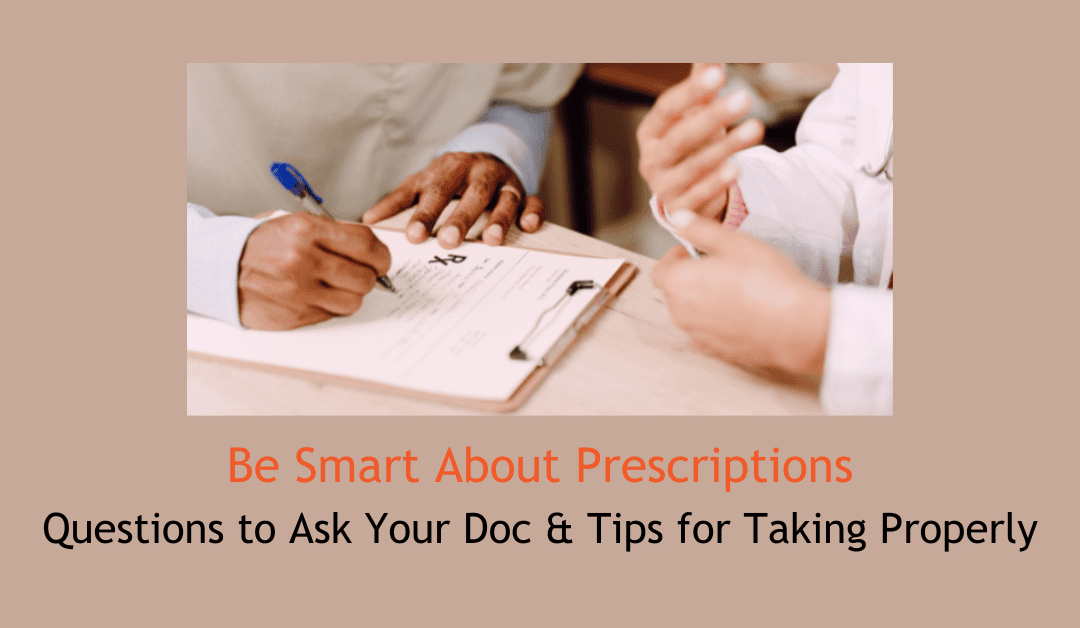
by Bag It Team | Oct 5, 2024 | Educational Articles
Taking prescriptions as directed is crucial to getting the most benefit from your medication while keeping yourself safe. To help your healthcare providers prescribe the right medications, it’s important to share a full list of everything you’re taking, including prescription drugs, over-the-counter medications, vitamins, minerals, supplements and herbs. Many supplements and over the counter medicines can interact with prescription drugs, so being forthcoming with this information is key. Also, make sure to mention any allergies.
The first step in properly using your prescriptions is understanding them. When your healthcare provider prescribes a medication, here are some essential questions to ask if the information isn’t immediately shared:
- What is the name of the medication? Get both the brand and generic names and confirm which one you’re being prescribed.
- What is the medication for? Understand the purpose of the medication and the risks of not taking it as prescribed.
- What is the correct dosage and schedule? Ask when and how often to take it, and whether it should be taken with food or on an empty stomach.
- How long will it take to work, and how can you tell if it’s effective? Know the expected timeline for results and what to do if it doesn’t seem to work.
- Are there any interactions or restrictions while taking the medication? This includes certain foods, beverages, other medications, or activities you should avoid.
- What if you miss a dose or accidentally take too much? Find out how to handle missed doses and whether refills are necessary.
- What side effects should you watch for? Both physical and mental side effects can occur, so know what to expect and how to manage them.
- Are there specific storage or handling instructions? Some medications need refrigeration, while others should be stored at room temperature or in a certain location in your home.
Tips to Help You Remember to Take Your Medications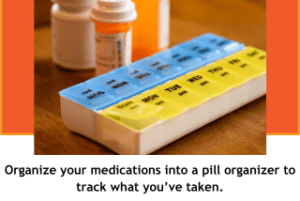
- Try to incorporate your medication routine into daily habits, like taking them with meals or at bedtime.
- Use technology, such as an alarm or a medication reminder app on your phone, to notify you when it’s time for your next dose.
- Consider asking a family member or caregiver to help remind you, especially for important medications.
- Organizing your medications into a pill organizer or separate containers for each day can make it easier to track what you’ve taken. Some pill organizers even come with built-in timers for added convenience.
Tips for Taking Medication
- Fill all prescriptions as instructed by your healthcare provider and be sure to follow the directions carefully. Complete the full course of medication unless your doctor advises otherwise.
- Never stop or change how you used medications to avoid potential safety risks.
- Use the patient forms in Section 1 of My Companion Guidebook (part of all Bag It Bags) to keep a detailed list of your current and past medications. Bring these lists to your doctor appointments and share them with your healthcare provider.
- Track your daily medication routine with customizable log forms in Section 2 of My Companion Guidebook (part of all Bag It Bags) to help you stay organized.
- It’s important to periodically review your medications with your healthcare provider or pharmacist, especially if you’re taking multiple prescriptions. This can help identify duplicate or unnecessary medications, or risky drug interactions.
- If you’re having trouble affording your prescription medications, Section 5 (Resources) of My Companion Guidebook (part of all Bag It Bags) lists organizations that may be able to help with financial support.
To see all of the helpful forms in the Bag It Bags, visit our Patient Page. You will also see a link to the forms in Spanish just under the Patients Forms heading.

 January often brings messages about transformation—new habits, new routines, new expectations. For many people impacted by cancer, those messages can feel overwhelming or disconnected from reality.
January often brings messages about transformation—new habits, new routines, new expectations. For many people impacted by cancer, those messages can feel overwhelming or disconnected from reality.

 March is Records Management Month—a perfect time to assess how you organize and manage your healthcare records. Whether you’re navigating a new diagnosis, managing a chronic condition, or simply keeping up with routine checkups, having your medical records organized can save time, reduce stress, and empower you to be an active participant in your care.
March is Records Management Month—a perfect time to assess how you organize and manage your healthcare records. Whether you’re navigating a new diagnosis, managing a chronic condition, or simply keeping up with routine checkups, having your medical records organized can save time, reduce stress, and empower you to be an active participant in your care. At Bag It Cancer, we understand that managing medical information can be overwhelming. That’s why every Bag It bag includes a My Companion Guidebook, a simple and effective tool designed to help patients and caregivers organize their healthcare journey. Inside, you’ll find:
At Bag It Cancer, we understand that managing medical information can be overwhelming. That’s why every Bag It bag includes a My Companion Guidebook, a simple and effective tool designed to help patients and caregivers organize their healthcare journey. Inside, you’ll find:
 Three rounds of golf were played on March 7, 8, and 9 at La Paloma Country Club and The Westin La Paloma Resort & Spa in Tucson, Arizona. It’s a beautiful Jack Nicklaus-designed course. The purpose of the Cologuard Classic golf tournament is to bring awareness to colon cancer, the importance of early detection, the available treatments, the innovations in detection and treatment, the prevention, recognize those affected, and to answer the huge number of questions that people have about colon cancer. What an exciting and busy weekend! Much walking was involved. Thank you to the Tucson Conquistadores and Exact Sciences and many others for coordinating this event.
Three rounds of golf were played on March 7, 8, and 9 at La Paloma Country Club and The Westin La Paloma Resort & Spa in Tucson, Arizona. It’s a beautiful Jack Nicklaus-designed course. The purpose of the Cologuard Classic golf tournament is to bring awareness to colon cancer, the importance of early detection, the available treatments, the innovations in detection and treatment, the prevention, recognize those affected, and to answer the huge number of questions that people have about colon cancer. What an exciting and busy weekend! Much walking was involved. Thank you to the Tucson Conquistadores and Exact Sciences and many others for coordinating this event. We were able to attend and participate in some fun and informative activities in the “Advocacy Expo Area”, yummy food was readily available in Survivor Central and other areas, there was some TV coverage of the opening ceremonies on the Today Show, there were some workshops/presentations inside the main hotel about treatment options, diagnoses, giving our feedback about our cancer experiences, and treatment innovations. I would like to have been able to attend more because they all sounded very interesting. Some of us touched base with fellow survivors and had personal conversations. I was able to give one of the new CRC (Colorectal Cancer) Bag It Bags to a lady from South Carolina. She and I went to her room and I gave her the guided tour of the Bag. She was extremely grateful to receive the bag. The look of gratitude on her face was rewarding. We exchanged contact information and we’ll stay in touch.
We were able to attend and participate in some fun and informative activities in the “Advocacy Expo Area”, yummy food was readily available in Survivor Central and other areas, there was some TV coverage of the opening ceremonies on the Today Show, there were some workshops/presentations inside the main hotel about treatment options, diagnoses, giving our feedback about our cancer experiences, and treatment innovations. I would like to have been able to attend more because they all sounded very interesting. Some of us touched base with fellow survivors and had personal conversations. I was able to give one of the new CRC (Colorectal Cancer) Bag It Bags to a lady from South Carolina. She and I went to her room and I gave her the guided tour of the Bag. She was extremely grateful to receive the bag. The look of gratitude on her face was rewarding. We exchanged contact information and we’ll stay in touch. I found out that there were 361 colorectal cancer patients, survivors, caregivers and loved ones from 36 states and Canada who attended this year’s Cologuard Classic.
I found out that there were 361 colorectal cancer patients, survivors, caregivers and loved ones from 36 states and Canada who attended this year’s Cologuard Classic.




Recent Comments